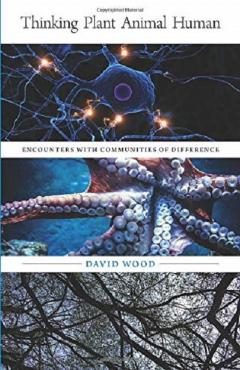Collected essays by a leading philosopher situating the question of the animal in the broader context of a relational ontology There is a revolution under way in our thinking about animals and, indeed, life in general, particularly in the West. The very words man, animal, and life have turned into flimsy conceptual husks-impediments to thinking about the issues in which they are embroiled. David Wood was a founding member of the early 1970s Oxford Group of philosophers promoting animal rights; he also directed Ecology Action (UK). Thinking Plant Animal Human is the first collection of this major philosopher's influential essays on "animals," bringing together his many discussions of nonhuman life, including the classic "Thinking with Cats." Exploring our connections with cats, goats, and sand crabs, Thinking Plant Animal Human introduces the idea of "kinnibalism" (the eating of mammals is eating our own kin), reflects on the idea of homo sapiens, and explores the place of animals both in art and in children's stories. Finally, and with a special focus on trees, the book delves into remarkable contemporary efforts to rescue plants from philosophical neglect and to rethink and reevaluate their status. Repeatedly bubbling to the surface is the remarkable strangeness of other forms of life, a strangeness that extends to the human. Wood shows that the best way of resisting simplistic classification is to attend to our manifold relationships with other living beings. It is not anthropocentric to focus on such relationships; they cast light in complex ways on the living communities of which we are part, and exploring them recoils profoundly on our understanding of ourselves.
Categories:
Language:
Engleza
Publishing Date:
2020
Publisher:
Cover Type:
Paperback
Page Count:
272
Collection:
ISBN:
9781517907228
Dimensions: l: 14cm | H: 22cm | 3.8cm
Unavailable
Price applicable only to online purchases!
Free Gift Wrapping!
Free shipping over 150 RON
You can return it in 14 days
You got questions? Contact Us!

